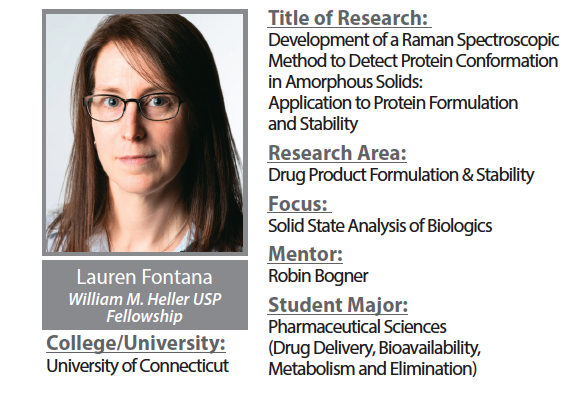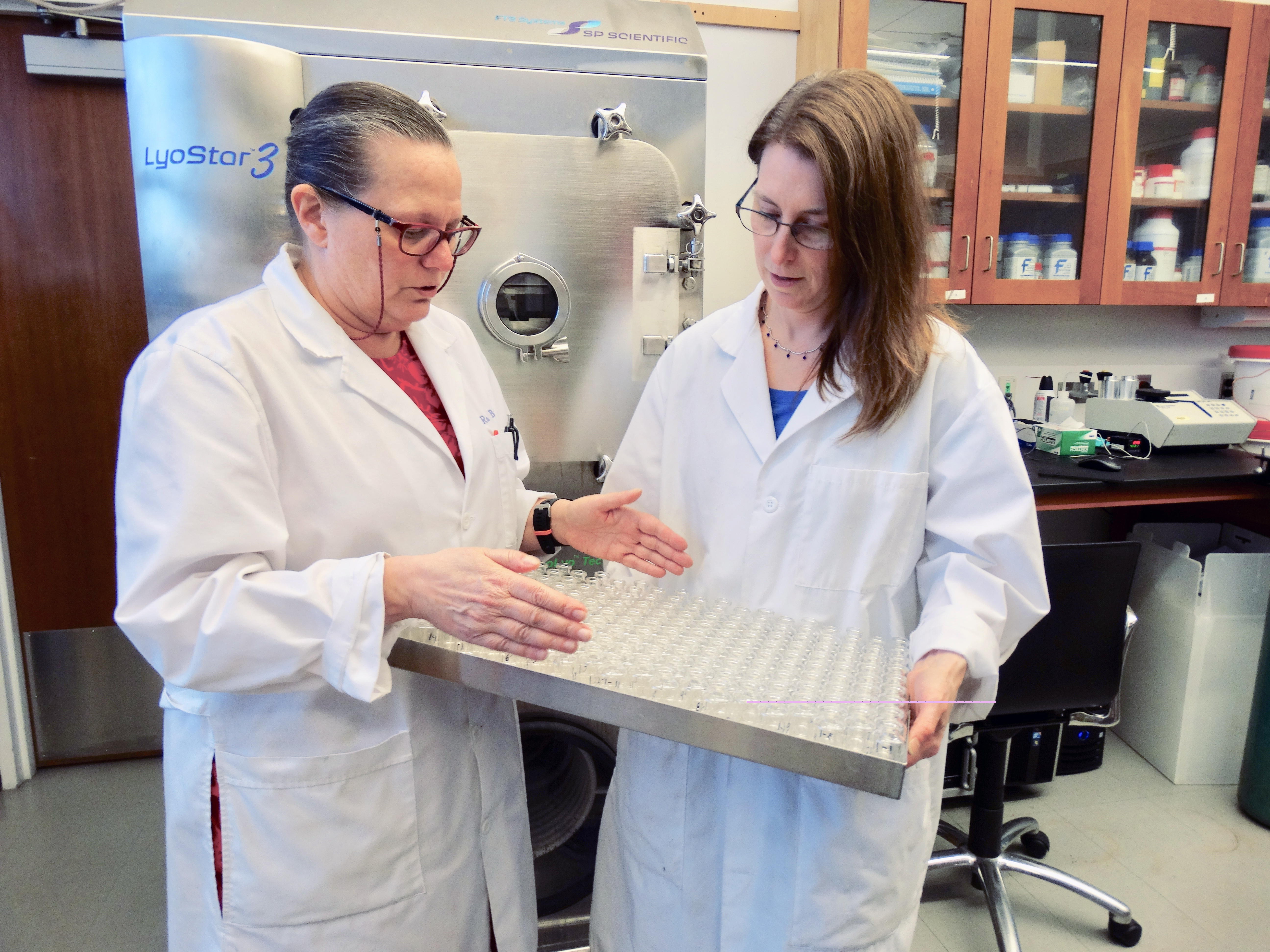School of Pharmacy graduate student Lauren Fontana was recently awarded a prestigious 2018 Pre-Doctoral Fellow Award in Pharmaceutical Sciences from the American Foundation for Pharmaceutical Education (AFPE).
Fontana’s career path in pharmacy is noteworthy and encouraging for those unsure of their direction. After receiving her B.S. in Chemistry from Framingham State University in Massachusetts Fontana left academia to work and start a family. Fifteen years elapsed between her B.S. and her work towards a doctoral degree. She joined the graduate program in Pharmaceutical Sciences at UConn in 2013 as her son went off to college. In 2017 she secured a Pre-Doctoral Fellowship in Pharmaceutics from the Pharmaceutical Research and Manufacturers of America (PhRMA) Foundation.
Fontana is currently a doctoral candidate in her final year, advised by Dr. Robin Bogner. For her dissertation research, she is developing a Raman spectroscopic method to detect structural changes, which are important to drug potency, in dry proteins formulations. The goal is to develop a rapid screening method to support drug development in the biopharmaceutical sector.
 FDA approvals of protein drugs has risen dramatically. Most of these drugs require sterile liquid injections. However, protein drugs are often not stable in liquid form, meaning that they are more likely to degrade during storage before reaching the patient. Approximately 30% of these drugs are freeze dried to improve storage stability. Freeze drying is the process of water removal under vacuum to remove the ice from a frozen sample, which transforms the liquid drug to a dry solid product that is stable during storage. However, protein structural changes during the freeze-drying process itself may negatively impact drug potency. Currently no routine method is able to predict the loss in potency during storage. A simple analysis of the freeze-dried protein immediately after processing that predicts stability would be ideal.
FDA approvals of protein drugs has risen dramatically. Most of these drugs require sterile liquid injections. However, protein drugs are often not stable in liquid form, meaning that they are more likely to degrade during storage before reaching the patient. Approximately 30% of these drugs are freeze dried to improve storage stability. Freeze drying is the process of water removal under vacuum to remove the ice from a frozen sample, which transforms the liquid drug to a dry solid product that is stable during storage. However, protein structural changes during the freeze-drying process itself may negatively impact drug potency. Currently no routine method is able to predict the loss in potency during storage. A simple analysis of the freeze-dried protein immediately after processing that predicts stability would be ideal.
Raman light scattering shows promise as a powerful routine tool to determine protein structural changes in dry formulations that are expected to predict long-term protein product stability. Using this method as a screening tool would ideally enable companies to make improved drug products in a shorter amount of time — ensuring the patient receives higher quality medications at a lower cost.
Lauren received pre-doctoral fellowships from both AFPE and PhRMA to support her research goals. “The fellowships allow me to focus on my research goals, allowing latitude in defining my research direction” said Fontana. “In addition, networking with previous pre-doctoral fellows have enhanced my career trajectory.”
Upon graduation, Lauren’s goal is to contribute to the development and transfer of new pharmaceutical products from concept to manufacturing. Using her previous 15 years of experience, Lauren looks forward to leading a team of scientists. Her goal is to have a career that is interesting, challenging and enables her to contribute to the greater good with improved medicines for patients.



